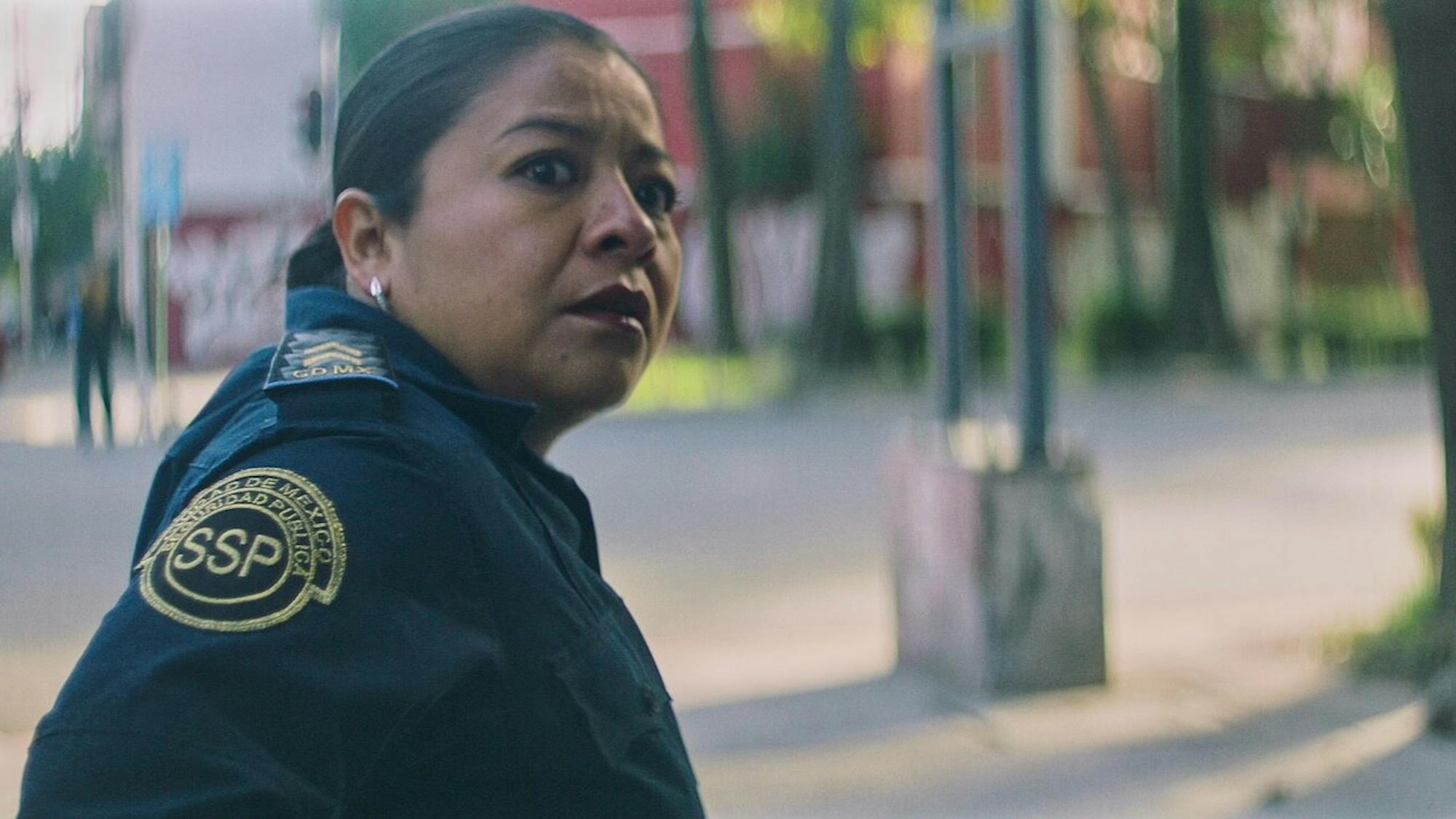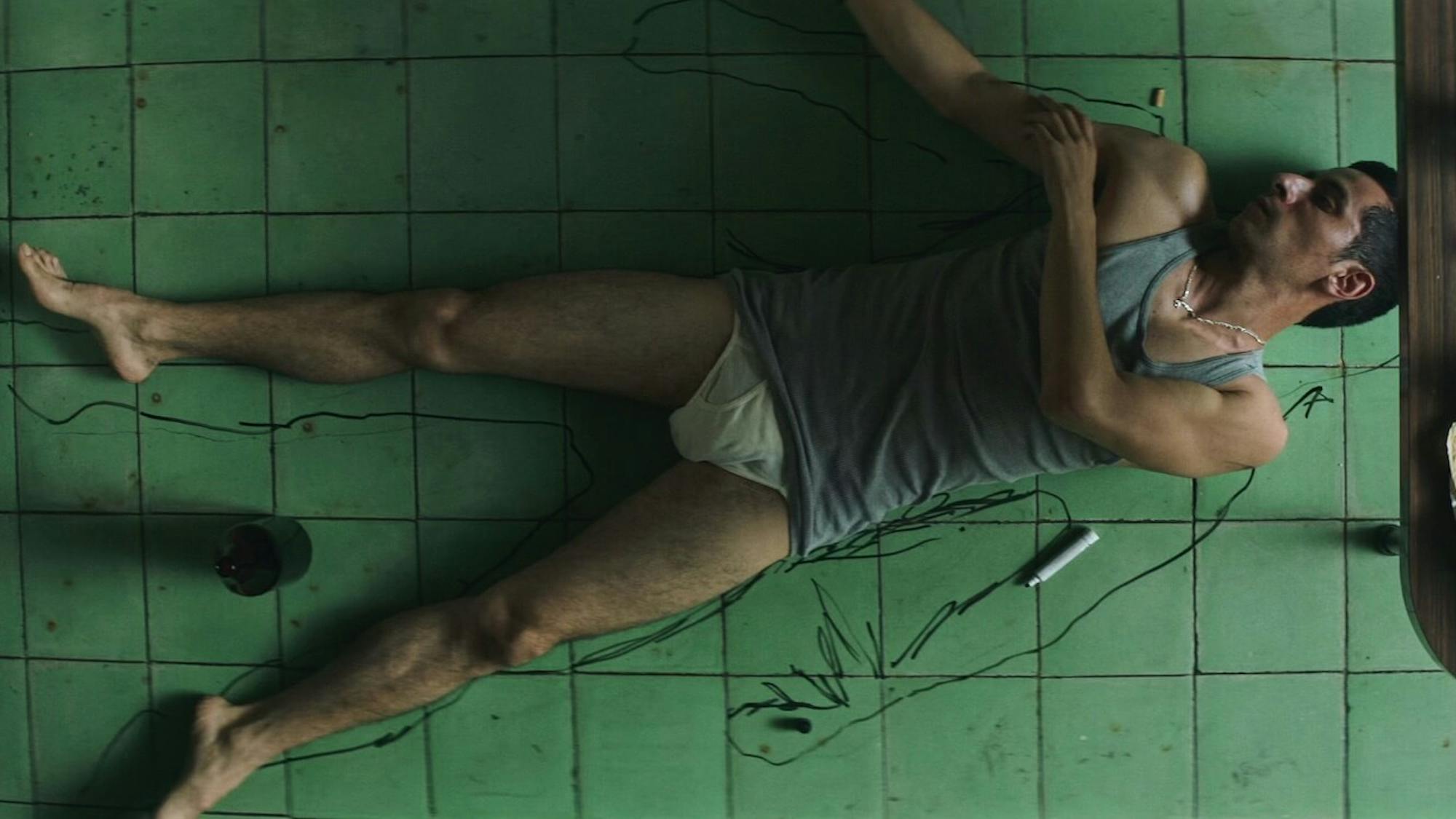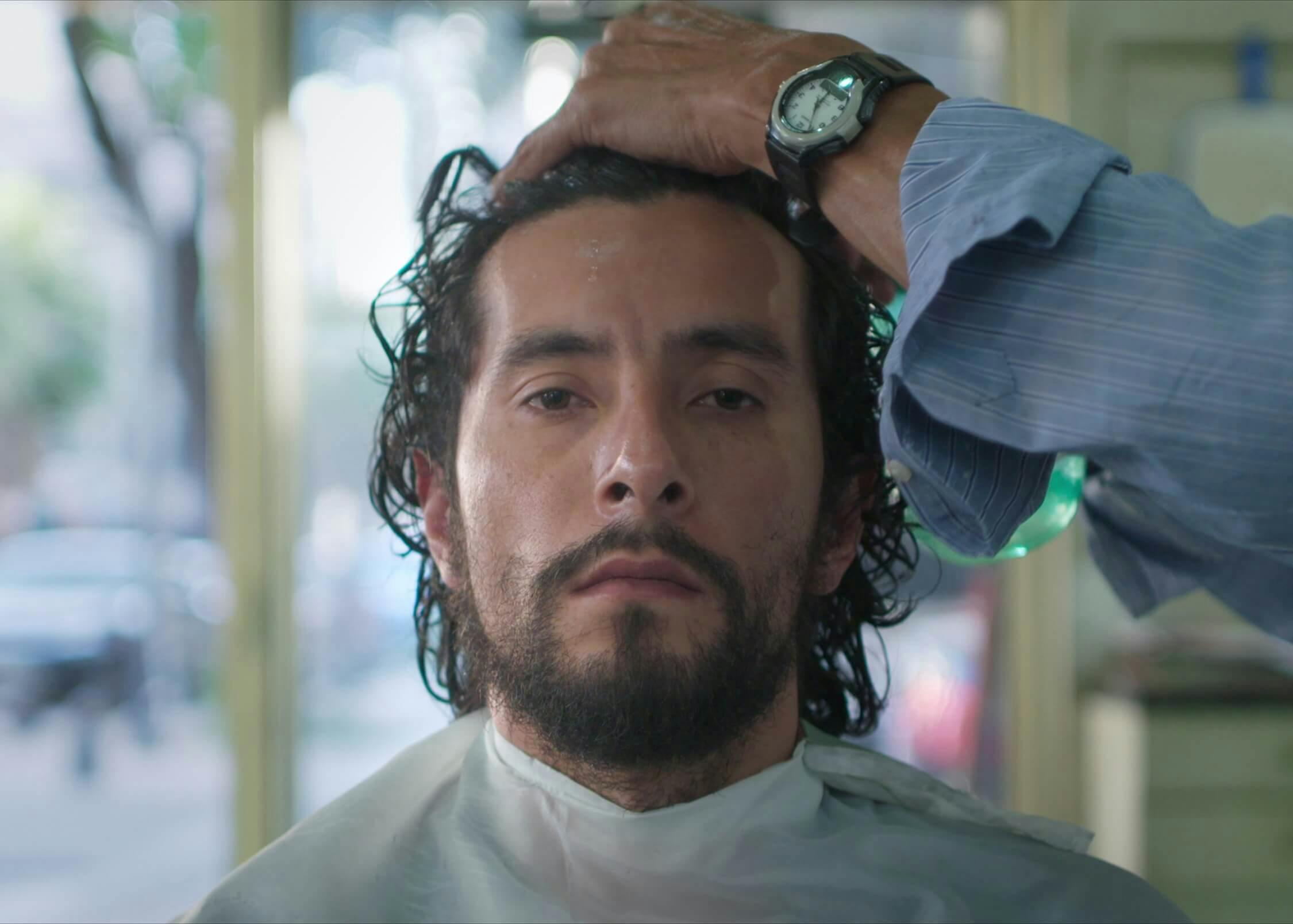Director Alonso Ruizpalacios (2014’s Güeros, 2018’s Museo) merges innovative documentary techniques with exquisitely produced reenactments in A Cop Movie, the story of two police officers in Mexico City whose greatest challenges are seldom the criminals they encounter. The film tells the story of real-life subjects: officers and romantic partners José de Jesús Rodriguez and Maria Teresa Hernández Cañas. The reenactments in the film feature Mónica del Carmen and Raúl Briones, who underwent actual police training in preparation for and as part of their participation in the documentary. Lines are blurred between good cops and bad, reality and storytelling, documentary and fiction, and even partner and lover. At once mind-bending and entirely straightforward, A Cop Movie paints a portrait of people doing their best in a world of impunity and corruption. Queue spoke with the film’s director about the making of A Cop Movie.

Mónica del Carmen
Queue: How did this project evolve into its current shape, a documentary also utilizing actors?
Alonso Ruizpalacios: It was not something we planned as a starting point. It was a practical solution to a big problem, which was how to present something so elusive that happens behind the scenes — how to portray all those small acts of corruption that occur daily. We knew we needed to make use of fiction.
How did you discover José de Jesús Rodriguez Hernández and María Teresa Hernández Cañas, the police officers presented in the documentary?
AR: Someone suggested we talk to Teresa, and when we saw her, it was love at first sight. We loved her way of telling stories and her unusual perspective on her own job where she’s very critical of the institution while proudly wearing the uniform. All those contradictions fascinated us. Then meeting Montaya and knowing that we were going to have a love story in the center of everything was very seductive.

Raúl Briones
How did your opinion of police in Mexico City evolve through the journey of making this film?
AR: I do not see the police in the same way I did before. The documentary is a tool to break bias, to get to know the people, to penetrate the mask that all of us wear. They are not saints nor are they demons, just people trapped within a dysfunctional system, and many of them make poor decisions.
There’s some levity and humor in this film. How did that come about?
AR: It’s part of who Teresa and Montoya are and how they see life. That sense of humor is sometimes the only way they have to be able to navigate all that they live. And certainly it was part of what attracted us to both of them — their sense of humor and how, when they’re together, it’s like a tragicomic duet.
